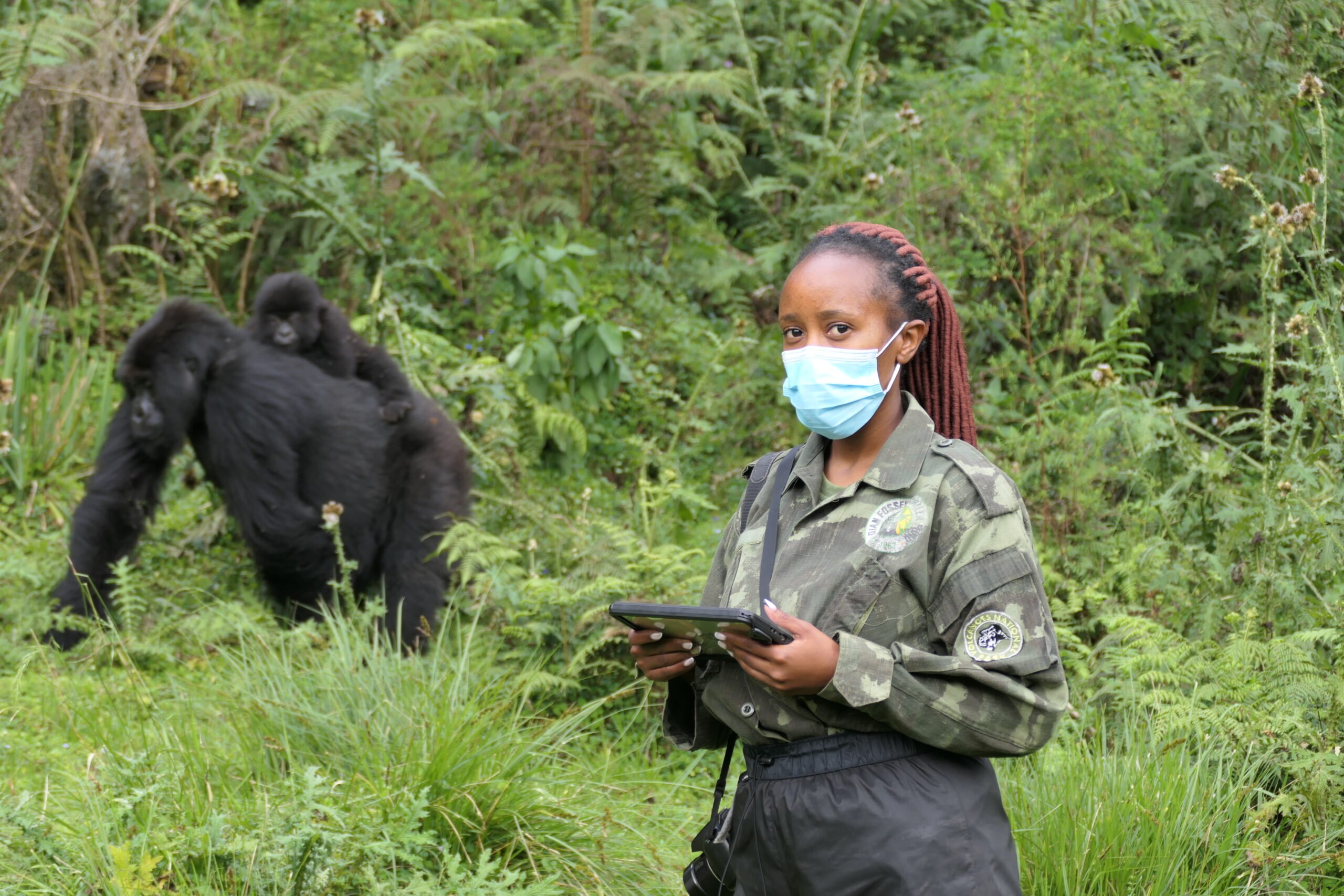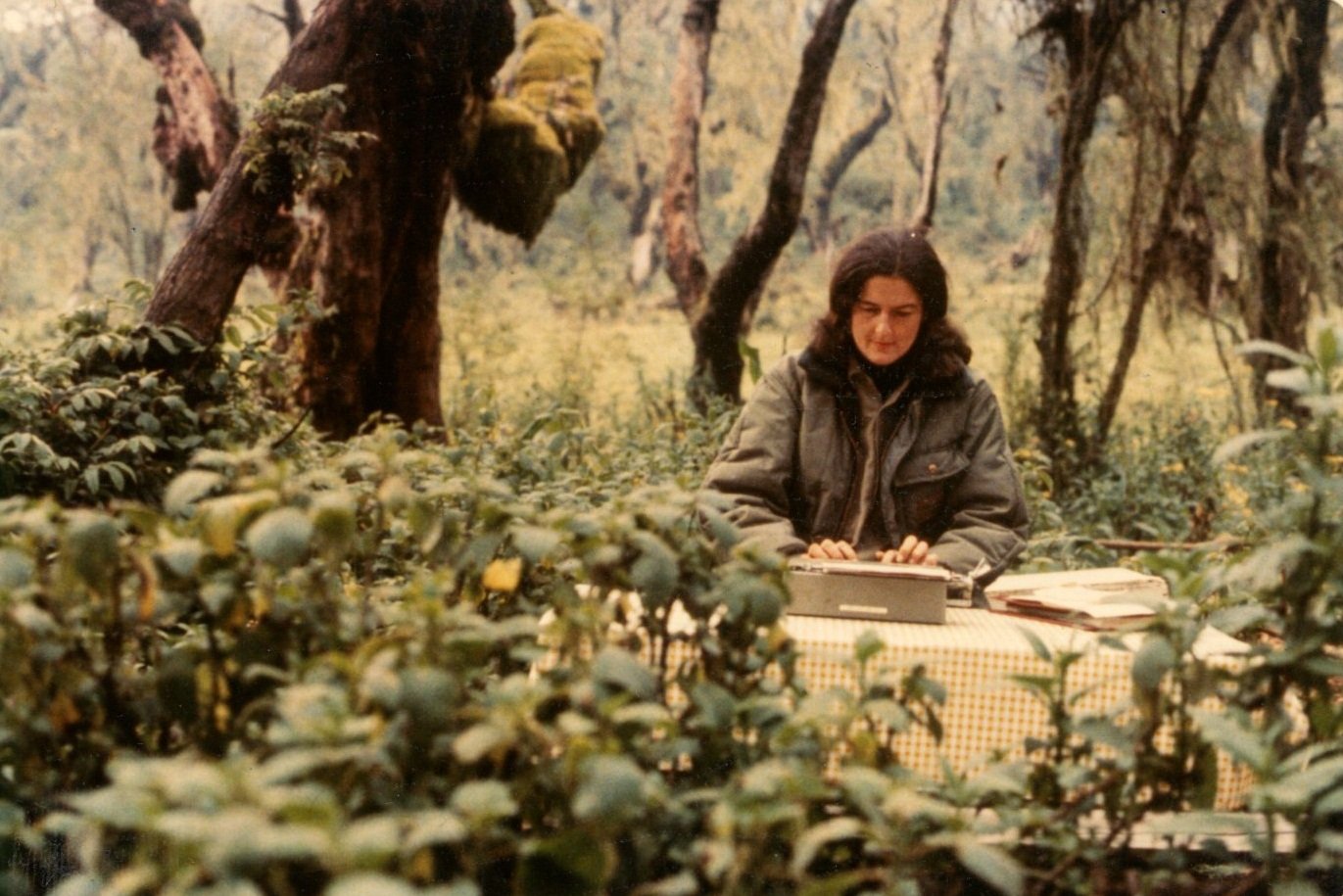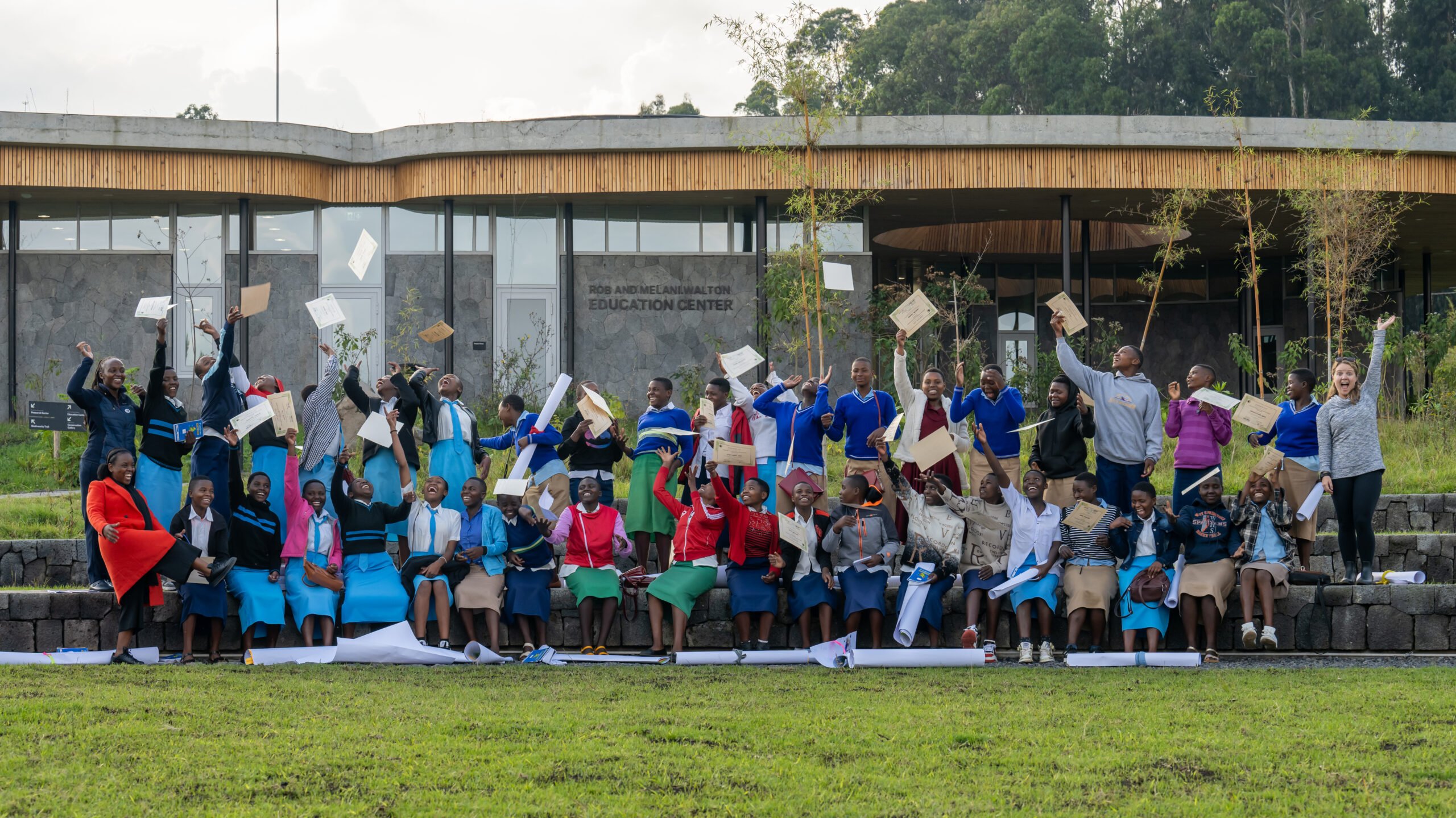For conservation to work, it must be sustainable in the long term. With this goal in mind, the Dian Fossey Gorilla Fund is dedicated to providing young African scientists with the skills they need to become future leaders in conservation, science and education. This includes training hundreds of local college students each year, providing scholarships to our staff for obtaining undergraduate and graduate degrees, and providing professional internships within our programs. We call this capacity building.
Since 2003, the Fossey Fund has had a partnership with the University of Rwanda’s biology conservation program, to help teach and train students in conservation through class work, mentoring, skills training, and conducting scientific research. With support from the Cleveland Metroparks Zoo, each year we host eight to 14 students from the university during their final-year research projects, which cover a wide range of topics related to conservation, gorillas, biodiversity and Volcanoes National Park (VNP).

Within this program, the university students are supervised by both Fossey Fund staff and scientific partners, in designing their research projects, collecting data in the field, analyzing their findings, and presenting their work. This summer we have 12 students participating, with a wide variety of research topics, including:
- The effects of experiential learning on the knowledge and attitude of students toward golden monkey conservation.
- Feeding ecology of mountain gorillas groups ranging on the slopes of Muhabura, Gahinga and Sabyinyo.
- Evaluating the impact of conservation education programs on students’
- Habitat use of golden monkeys in VNP/
- Feeding ecology, ranging patterns and group composition of golden monkey groups living outside the Gishwati protected area.
- Quantification of defecation and fluctuation of parasitic helminths load in feces of mountain gorillas in VNP.
- The yield of key food plant species by mountain gorillas at feeding sites.
- Evaluating the effects of conservation movies on improving conservation awareness of local communities around VNP.
- Diet overlap between mountain gorilla and other sympatric large herbivores in VNP.
- Diversity of Coleoptera beetles along elevation gradients of VNP.
- Feeding and other types of damage by insects on nettles (a gorilla food plant).
- Assessment of plant communities in burned and unburned areas along the Muhabura slope in VNP.

“We are thankful to the Karisoke Research Center for establishing this wonderful and productive program,” says Bugingo Lounge Cesar, the students’ representative. “We receive an excellent array of knowledge and skills needed to address the conservation challenges of the future. We are also extremely grateful to Cleveland Metroparks Zoo for their support to help make this happen.”
“There is something really special about being part of a team whose mission is so pure — to help lift up the next generation of conservation scientists in Rwanda,” says Dr. Kristen Lukas, director of conservation and science at Cleveland Metroparks Zoo. Dr. Lukas and other Cleveland staff travel to Rwanda each year to work with these students. “The University of Rwanda students consistently bring enthusiasm, diligence, and sincerity to their work, which makes mentoring them extremely rewarding,” she says.
This program has proven to be very successful, with more than 85 percent of all students who participate going on to conservation-related careers in either government or private organizations, or to continuing their education in the field of conservation. Some past participants are now even working at Karisoke or conducting additional studies.

“We are very excited to welcome a new cohort of students each year,” says Karisoke Director Felix Ndagijimana, who also directs all of the Fossey Fund’s programs in Rwanda. “The successes recorded by our capacity-building program for undergraduate biology students are really impressive and we look forward to the completion of the students’ projects this year, and to the results of their research,” he says.
Submitted by Cedric Ujeneza, Karisoke Research Center






